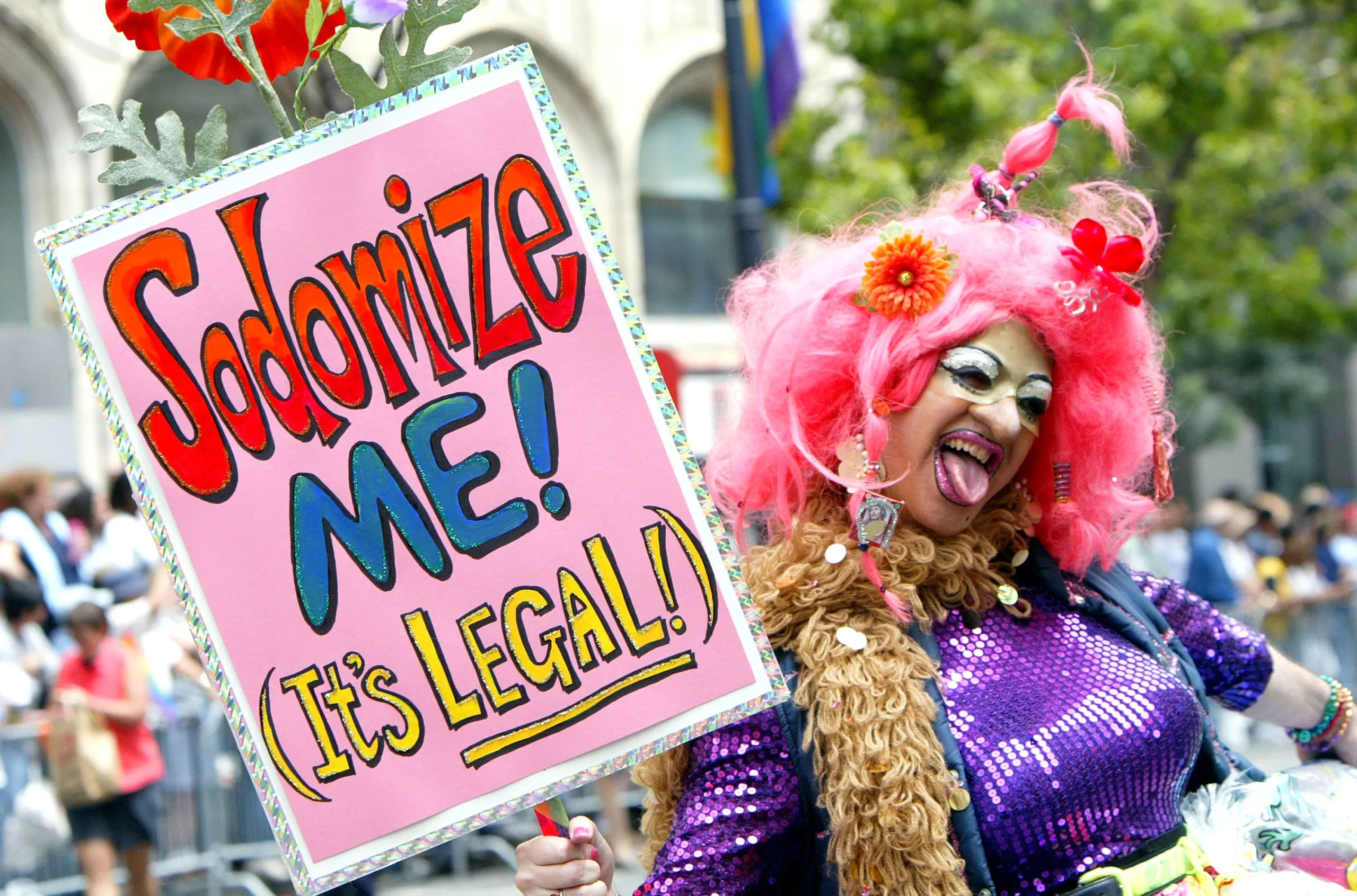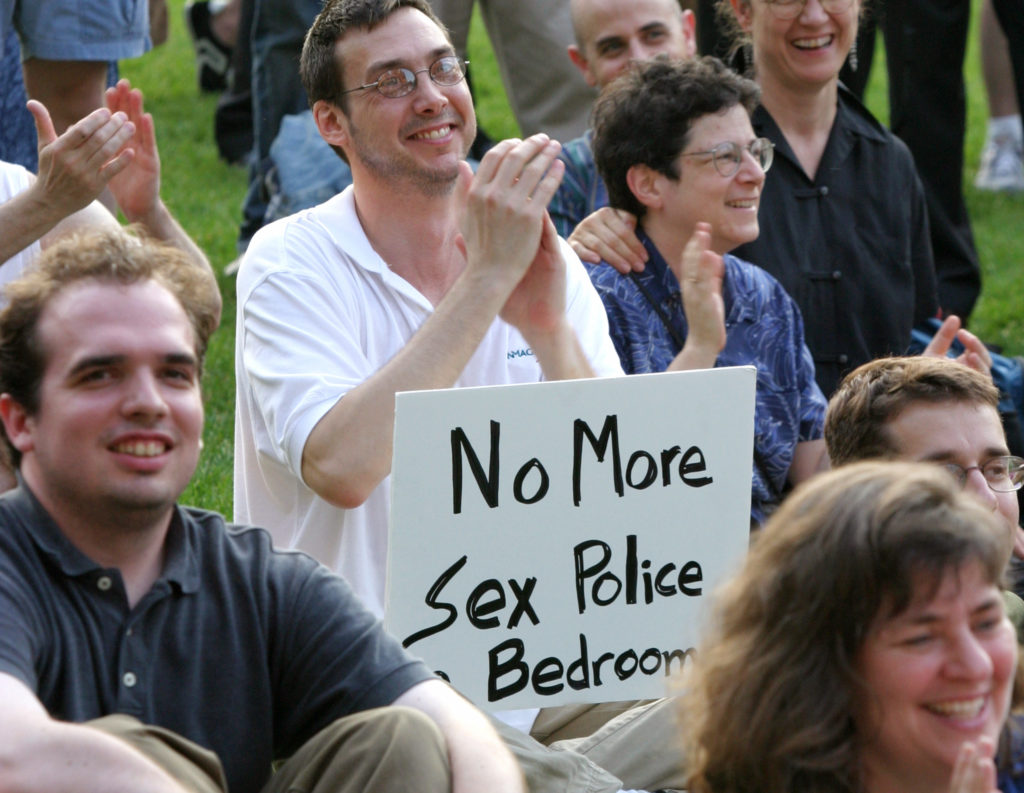Rally in Copley Square, Boston to celebrate the US
Supreme Court decision to strike down a sodomy law in Lawrence v Texas. (Rick Friedman/Corbis)
In 2020, there are 16 US states that still have sodomy laws against “perverted sexual practice” and “crimes against nature”.
According to ACLU, laws against sodomy were originally designed to prohibit any sex that was not for procreation, and so included crimes like having sex outside of marriage and bestiality.
But in the late 1960s, the laws began to be used to specifically target gay people, as an excuse for discrimination when gay rights progress was just starting to be made.
Some states rewrote their sodomy laws so that they would only apply to gay people, others ruled in court that they could not be applied to straight people.
In other states, no official change was made and sodomy laws were simply treated as if they only applied to gay people.
The laws were used to stop LGBT+ people raising children, to fire them or refuse them jobs and to generally discriminate against them and silence their voices.
Sodomy is illegal in Alabama, Florida, Georgia, Idaho, Louisiana, Maryland, Massachusetts, Michigan, Minnesota, Mississippi, North Carolina, Oklahoma and South Carolina. Three states specifically target their statutes at same-sex relations only: Kansas, Kentucky, and Texas.
In 2003, the case of Lawrence v Texas saw a same-sex couple prosecuted for sodomy for having sex in private. In a landmark Supreme Court decision, prohibiting private same-sex activity between consenting adults was ruled unconstitutional.

This, along with anti-discrimination laws, effectively invalidated any remaining sodomy laws, but it still remains technically illegal in 16 states: Alabama, Florida, Georgia, Idaho, Louisiana, Maryland, Massachusetts, Michigan, Minnesota, Mississippi, North Carolina, Oklahoma, Kansas, Kentucky, Texas and South Carolina. In Kansas, Kentucky and Texas the laws solely target same-sex activity.
While it might not seem like a problem if the laws are invalidated, this has not stopped people being arrested for the “crime” in cases which are alarmingly recent.
In 2013, two men were targeted by undercover police in East Baton Rouge, Louisiana, and arrested for “crimes against nature”. In the same area in 2015, two men were again arrested for having consensual sex.
Although the crimes were thrown out by judges, these cases show that archaic sodomy laws and still having a detrimental effect on the LGBT+ community.
Legislators in Maryland are debating this session whether to repeal sodomy laws in the state.
According to analysis by the Boston Sun editorial board: “Maryland allows for up to 10 years in prison and a $1,000 fine upon criminal conviction for various acts, including bestiality… Setting the intimate relations with animals aside (we dearly hope that’s covered under animal abuse laws), there is no reason for the state to criminalise sexual acts between consenting adults.
“It’s shameful this law is still on the books and in use.”
